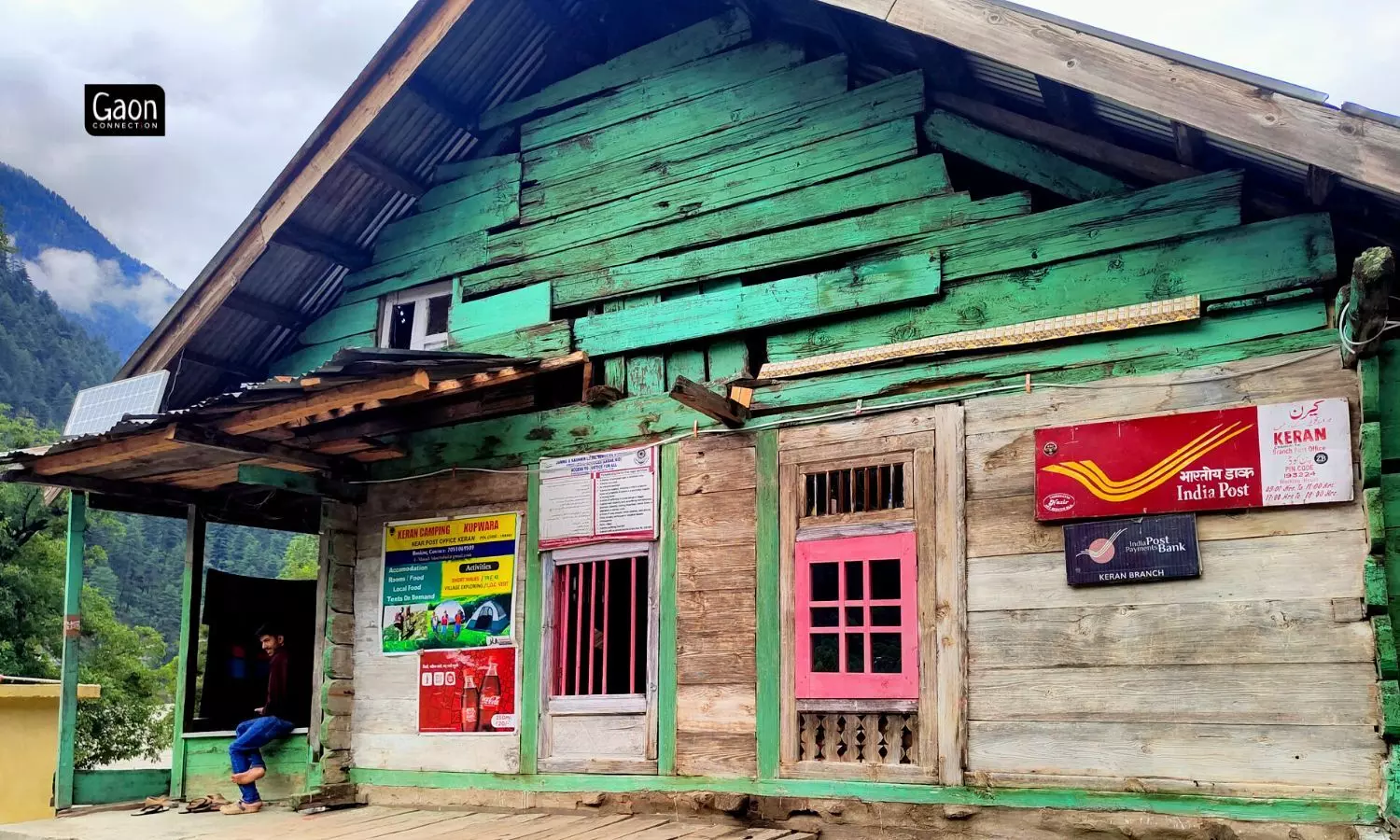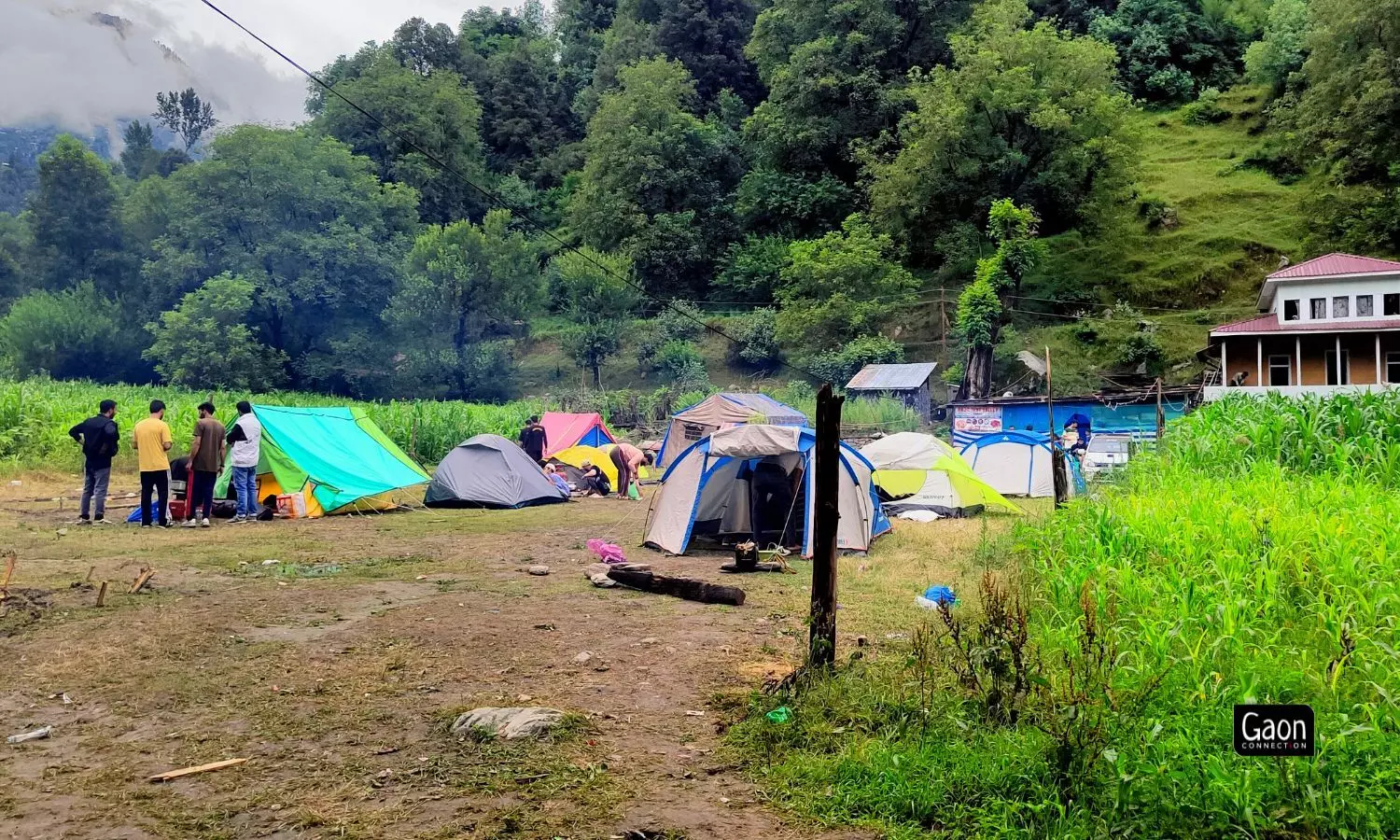Keran (Kupwara), Jammu and Kashmir
There is a spurt of holidaying happening on this side of the Kishanganga river in Keran, a charming village of no more than 1000 people in it. The river forms a natural boundary as on the other side is another Keran, but in Pakistan territory. The river is referred to as Neelam there. Pine trees and mountain slopes make Keran in Kupwara district in North Kashmir pretty as a picture. and now its local inhabitants have turned their homes into homestays.
A more lucrative livelihood
Last year, Ghulam Mohiddin Khan, a 45-year-old resident of Keran converted his house into a homestay after he got the requisite permission from the J&K Tourism Department.
According to him, while his rooms are occupied through the month, they are always booked on weekends. He earns up to Rs 50, 000 a month from the three rooms. “We charge Rs 1,000 per room, each of which can accommodate four to five people comfortably,” he told Gaon Connection. They also offer breakfast, lunch, and dinner to visitors, for an extra charge.
Before this Khan did construction work wherever he could find it and earned not more than Rs 15, 000 a month. He said that he was now not going to step out of Keran.

Border tourism has infused a new life into the remote villages along the LoC, offering livelihood opportunities for the locals who have long endured the challenges of living in conflict-stricken areas.
“Government has taken a great step to promote border tourism. It has opened up new job opportunities for border residents in villages like Keran. It was very difficult for me to make ends meet on what I earned as a labourer,” he said. Khan said that the government was planning to provide training to homestay owners to help them run their ventures more efficiently and professionally.
Also Read: Corn rotis and kahwa: Tea time in Kashmir’s Doodhpathri
Seeking peace and normalcy
Keran is located about 130 kilometres from Srinagar, the summer capital of J&K. In February 2021, India and Pakistan announced a ceasefire bringing relief to border residents. Border tourism has infused a new life into the remote villages along the LoC, offering livelihood opportunities for the locals who have long endured the challenges of living in conflict-stricken areas. Besides homestays, they also offer tent services to visitors.

A must visit at Keran is the ‘First Post Office of India’ so called as it is the first one from the LoC in terms of distance.
“We stayed at a local home and it was a lifetime experience. We also had a taste of barbeques in the evening hours which we grilled on the banks of Kishenganga River,” Ashfaq Ahmad, a 28-year-old resident of Srinagar, told Gaon Connection. He visited Keran with three of his friends and said it was a long standing plan of his to visit and experience staying in the border areas. “We had to take permission from the J&K police before we visited Keran,” he said.
According to Raja Yaqoob, Director, Tourism, Kashmir, the government has been promoting border tourism.
“We want to have eco-friendly home stays in rural areas such as Keran. Over 40 homestays are presently available in Keran and many more people are converting their homes into homestays,” he told Gaon Connection.
A must visit at Keran is the ‘First Post Office of India’ so called as it is the first one from the LoC in terms of distance.

Besides homestays, the locals also offer tent services to visitors.
There were nearly 25,000 people who visited Keran in July and August, said an army official posted there. “Over 80 percent of visitors are locals who visit on weekends. This place is open for everyone. They only have to carry an Aadhaar card as identity,” he said, adding that mobile phones did not work too well in the area.
“Keran is a beautiful part of Himalayan ecology. We have to preserve it for future generations. Eco-friendly homestays made of wood should be promoted,” Bashir Ahmad, who has converted his three room house into a homestay, told Gaon Connection.
Most people living here are either working in the Army and police or are farmers and labourers.
Bashir who worked at a petrol station in Baramulla earned Rs 10,000 a month. Now, his homestay earns him anything up to Rs 40,000 a month, he said.
Also Read: It’s chillai kalan in J&K and here are some traditional Dogra recipes to keep you warm


















